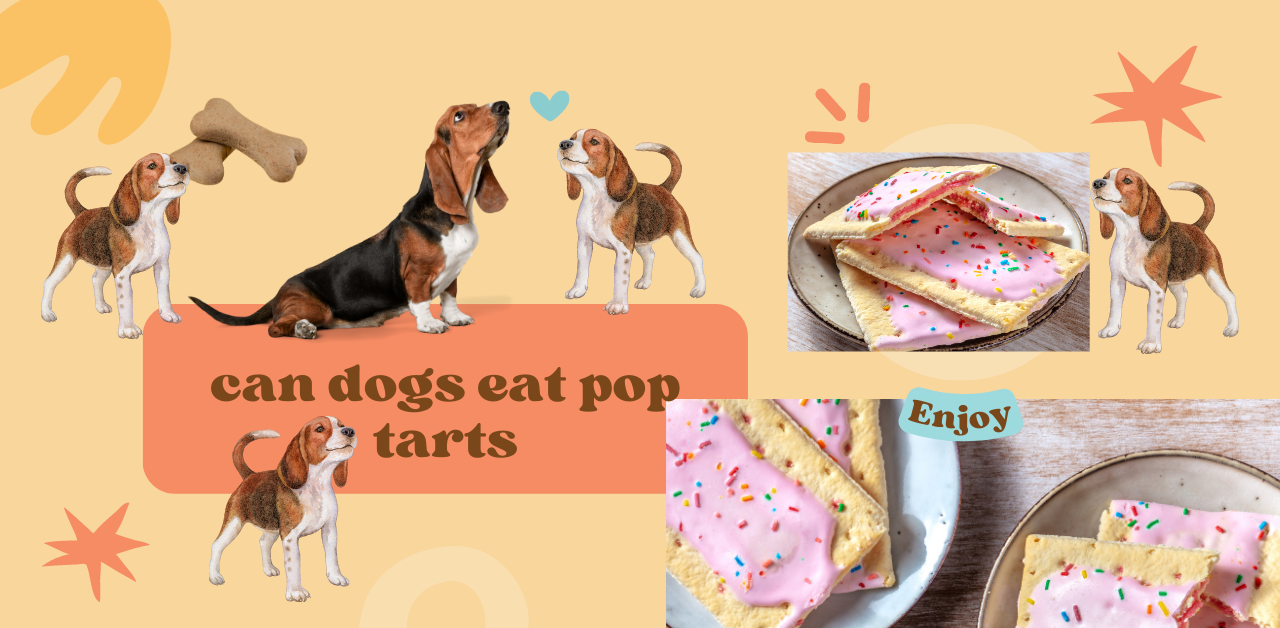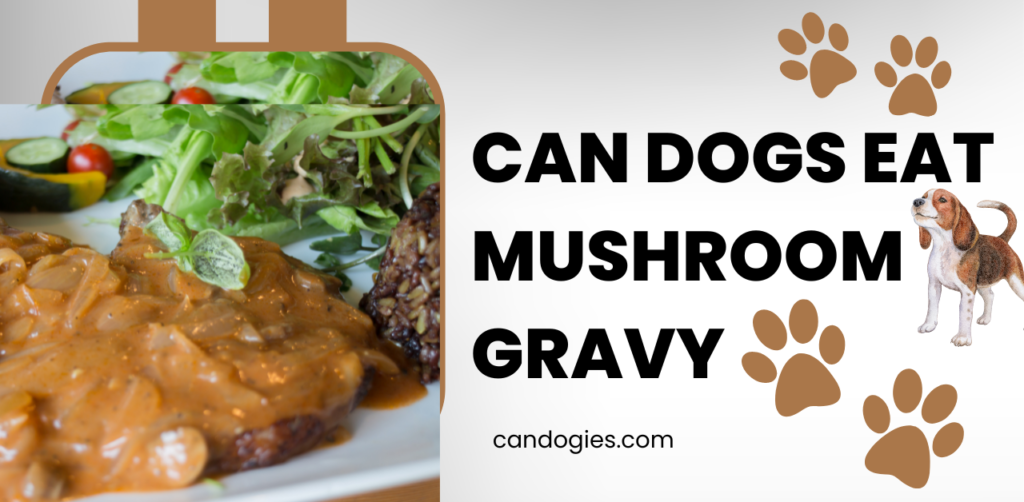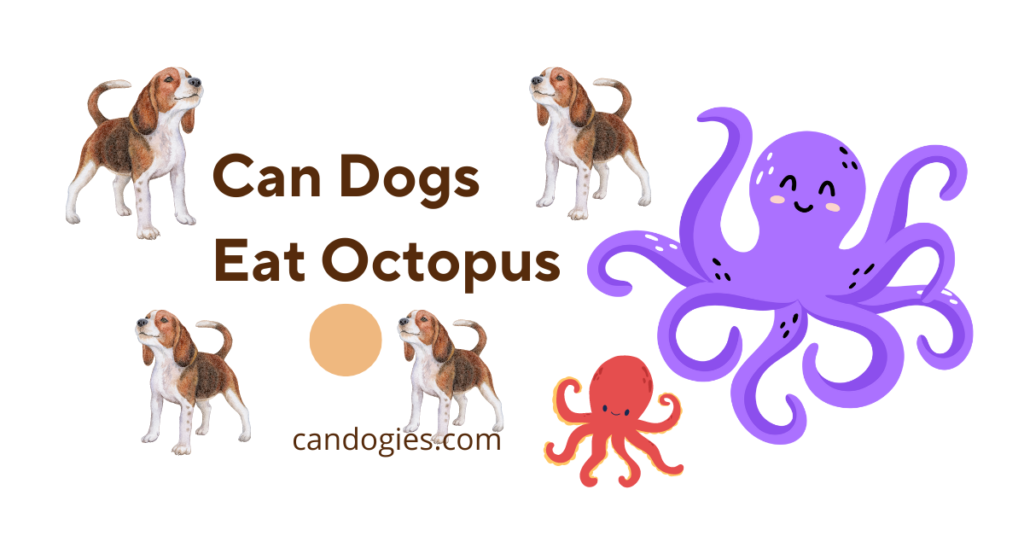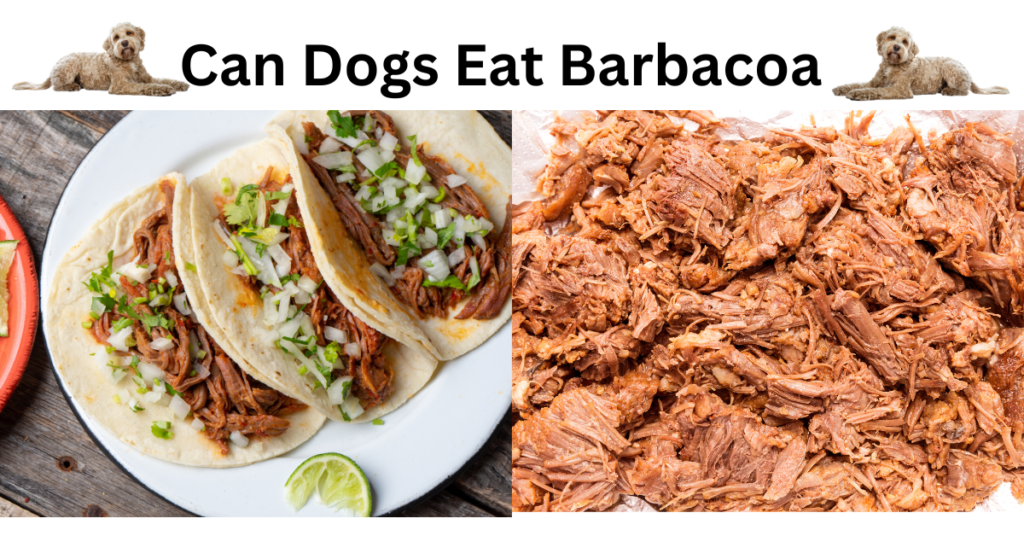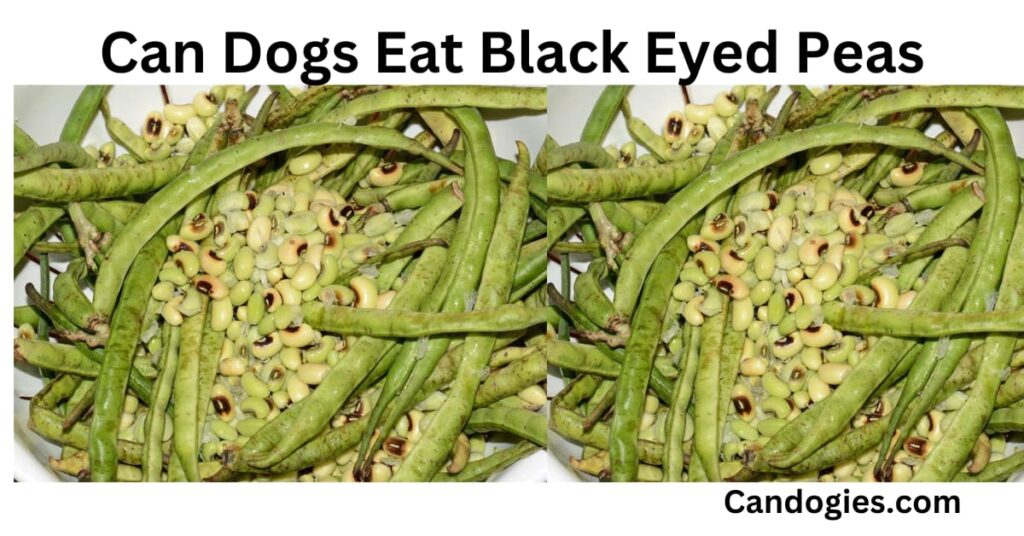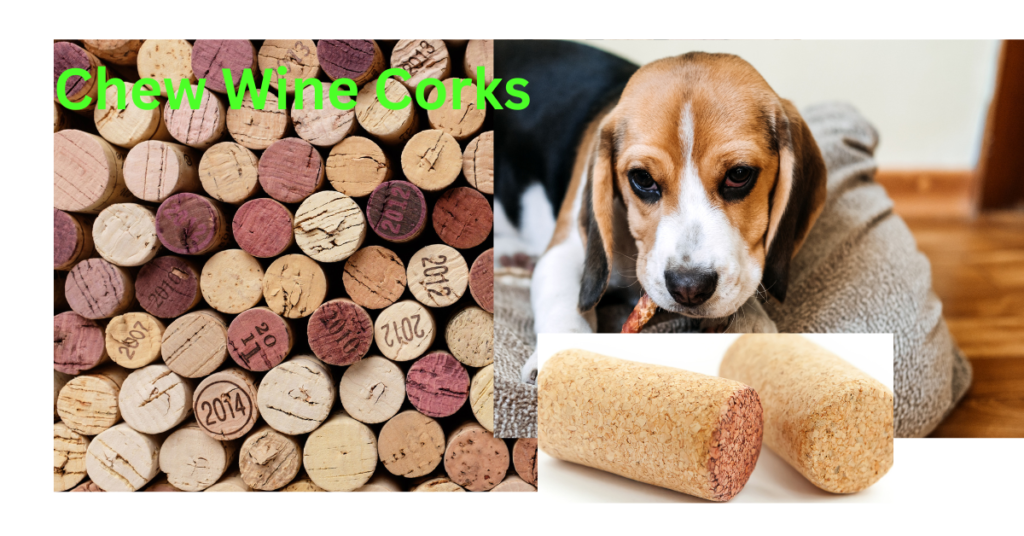Can Dogs Eat Pop Tarts? Risk and Benefits
As a dog owner, you want to ensure your furry friend is happy, healthy, and well-fed. While most dogs are content with a standard diet of high-quality dog food, it’s natural to want to treat them with something special occasionally. Pop-Tarts are a popular and convenient breakfast pastry that many people enjoy, but can dogs eat Pop-Tarts safely without any risks?
The answer to this question is more complex than yes or no. Pop-Tarts are processed, sugar-laden food containing harmful ingredients such as artificial flavors, colors, and preservatives that may cause digestive issues in dogs.
Additionally, Pop-Tarts are high in calories and can contribute to weight gain and obesity in dogs, leading to various health issues such as joint problems, heart disease, and diabetes.
Can Dogs Eat Pop-Tarts? Complete Guide
Here we are going to discuss six major topics that you just need to know:
- What are Pop-Tarts?
- Can Dogs Have Pop-Tarts?
- Are Pop-Tarts Bad for Dogs?
- Benefit Dogs Eat Pop Tarts?
- Symptoms of Chocolate Toxicity
- Can Dogs Eat Strawberry Pop-Tarts?
What are Pop-Tarts?
Pop-Tarts are a type of toaster pastry that has been a popular breakfast food in many countries, particularly in the United States, since they were first introduced by Kellogg’s in 1964. They contain a sweet, flour-based crust filled with fruit-flavored jam or other sweet fillings. The pastry is usually rectangular or square-shaped, with a crimped edge to help keep the filling inside.
Pop-Tarts are designed to be heated in a toaster or microwave and eaten warm, but they can also be enjoyed cold. They are often marketed as a quick and convenient breakfast option for busy people on the go, as they can be prepared quickly and easily.
Pop-Tarts come in various flavors, including strawberry, blueberry, cherry, raspberry, apple, cinnamon, and chocolate. There are also special limited-edition flavors that are released from time to time, such as pumpkin spice or s’mores. In addition to the traditional flavors, several types of Pop-Tarts are available, including low-fat and sugar-free options.
Despite their popularity as a breakfast food, Pop-Tarts have been criticized for their high sugar and calorie content. Many nutritionists recommend limiting their processed foods like Pop-Tarts intake and opting for healthier breakfast options, such as whole grains, fruits, and vegetables. However, for many people, Pop-Tarts remain a beloved breakfast treat enjoyed on occasion as part of a balanced diet.

Can Dogs Have Pop-Tarts?
While dogs can technically eat Pop-Tarts, it is not recommended. Pop-Tarts are processed, sugar-laden food containing harmful ingredients such as artificial flavors, colors, and preservatives that may cause digestive issues in dogs. Additionally, Pop-Tarts are high in calories and can contribute to weight gain and obesity in dogs, leading to various health issues such as joint problems, heart disease, and diabetes.
Furthermore, filling in Pop-Tarts can also be problematic for dogs. Some Pop-Tarts contain chocolate, which is toxic to dogs, and others may have fruit fillings that contain xylitol, an artificial sweetener that is also toxic to dogs. Even Pop-Tarts without chocolate or xylitol can still cause digestive upset, such as vomiting or diarrhea, in dogs due to the high sugar and fat content.
It’s essential to remember that dogs have different nutritional needs and dietary restrictions than humans. And feeding them human food should be done with caution and in moderation. Sharing a small piece of Pop-Tart with your dog on rare occasions may not cause harm. It’s generally best to avoid feeding them Pop-Tarts altogether and offer them healthy, dog-friendly treats specifically designed for their nutritional needs.
Are Pop-Tarts Bad for Dogs?
Pop-Tarts are not the best food option for dogs and are generally not recommended to be fed to them. Pop-Tarts are high in sugar and calories, which can lead to weight gain and obesity in dogs and contribute to the development of other health issues such as diabetes and heart disease. Additionally, the processed ingredients in Pop-Tarts, including artificial flavors, colors, and preservatives, can cause digestive problems in dogs, such as vomiting and diarrhea.
Some Pop-Tart flavors also contain chocolate, which is toxic to dogs, and some may have fruit fillings that contain xylitol, an artificial sweetener that can be extremely harmful to dogs. Xylitol can cause a rapid insulin release in dogs, leading to hypoglycemia, seizures, and even liver failure.
Pop-Tarts are not a safe or healthy food option for dogs, and pet owners should avoid feeding them to their furry friends. Instead, it’s important to provide dogs with a balanced diet that meets their nutritional needs and offer them treats specifically designed for dogs. If you suspect your dog has ingested harmful ingredients or foods, seek veterinary attention immediately.
Benefit Dogs Eat Pop Tarts?
There are no significant benefits of feeding Pop-Tarts to dogs. Feeding Pop-Tarts to dogs can have adverse effects on their health. Pop-Tarts are processed foods high in sugar and calories, which can contribute to weight gain and obesity in dogs. Additionally, the artificial ingredients and preservatives in Pop-Tarts can cause digestive issues in dogs, such as vomiting and diarrhea.
Some Pop-Tart flavors also contain chocolate, which is toxic to dogs, and some may have fruit fillings that contain xylitol, an artificial sweetener that can be extremely harmful to dogs. Xylitol can cause a rapid insulin release in dogs, leading to hypoglycemia, seizures, and even liver failure.
It’s important to remember that dogs have different nutritional needs than humans, and feeding them human food should be done cautiously and in moderation. Rather than offering Pop-Tarts to dogs, it’s best to provide them with a balanced diet that meets their nutritional needs and to offer them healthy, dog-friendly treats specifically designed for their dietary requirements.
Symptoms of Chocolate Toxicity
Chocolate toxicity is a severe concern for dogs and can cause various symptoms depending on the amount and type of chocolate ingested. The symptoms of chocolate toxicity can range from mild to severe and may include the following:
- Vomiting
- Diarrhea
- Increased thirst and urination
- Restlessness or hyperactivity
- Rapid breathing
- Muscle tremors
- Elevated heart rate
- Seizures
- Cardiac arrest
It’s important to note that the severity of symptoms depends on the amount of chocolate ingested, the type of chocolate (dark chocolate and baking chocolate are more toxic than milk chocolate), and the size and weight of the dog. If you suspect your dog has ingested chocolate, seeking veterinary care immediately is important, as prompt treatment can prevent serious health complications.
Can Dogs Eat Strawberry Pop-Tarts?
Pop-Tarts are generally not recommended as a safe food option for dogs, including strawberry-flavored Pop-Tarts. While strawberry itself is not toxic to dogs, the ingredients in Pop-Tarts can harm their health.
Strawberry Pop-Tarts contain high levels of sugar, artificial flavors, and colors. And preservatives can cause digestive issues in dogs, such as vomiting and diarrhea. Some Pop-Tart flavors may contain chocolate or xylitol, which are toxic to dogs and can cause serious health complications.
It’s best to avoid feeding Pop-Tarts, including strawberry-flavored ones, to dogs and offer them healthy, dog-friendly treats specifically designed for their nutritional needs. If you suspect your dog has ingested harmful ingredients or foods, seek veterinary attention immediately.
Conclusion: Can Dogs Eat Safely Pop-Tarts Without Risks?
Pop-Tarts are not a safe food option for dogs. While some flavors, such as strawberry, may not contain directly toxic ingredients to dogs. The high sugar content and artificial additives can still cause digestive issues and other health problems. Some Pop-Tart flavors may contain chocolate or xylitol, which are toxic to dogs and can lead to serious health complications.
It’s important to remember that dogs have different nutritional needs than humans. Feeding them human food should be done cautiously and in moderation. Rather than offering Pop-Tarts to dogs, it’s best to provide them with a balanced diet that meets their nutritional needs and to offer them healthy, dog-friendly treats specifically designed for their dietary requirements.
If you suspect your dog has ingested harmful ingredients or foods, seek veterinary attention immediately.
FAQ’s
In particular, some Pop-Tarts contain the artificial sweetener xylitol, which can prove fatal to dogs, even in small amounts. Xylitol can result in a life-threatening drop in blood sugar levels (hypoglycemia) and can cause damage to your dog’s liver.
Pop-Tarts are loaded with sugar and fat and fail to give your body the healthy nutrients it needs. They’re considered empty calories because they’re high-calorie food with little nutritional value. One serving of Pop-Tarts is one toaster pastry.
Dogs have fewer taste buds than we do—about 1,700 in the average dog compared to 9,000 in us. Taste buds in different parts of the tongue respond to different microscopic molecules. Dogs can identify sweet, sour, salty, and bitter like us. Unlike us, they also have special taste buds to taste only water.
Some blueberry Pop-Tarts contain xylitol, which is extremely toxic to dogs and can sometimes be life-threatening, even if they only eat a small amount.
Unfortunately, they don’t have any caffeine because that level of early-morning breakfast perfection is too good for this world. They will be full of sugar, though, so they’ll at least deliver an energy rush. Dunking them into a cup of actual coffee seems like the logical conclusion.

